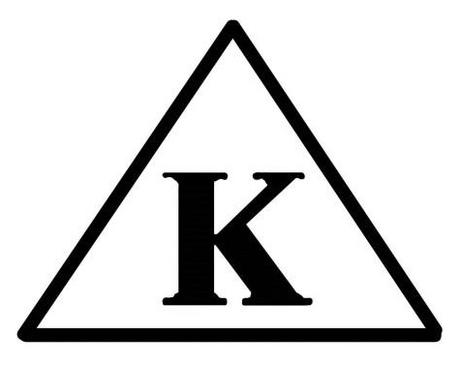
The issue of the reliability of the Triangle-K (aka "Ralbag", named for the founding Rabbi) hechsher has always been interesting. For reasons not necessarily well-known, the Triangle K has not been considered generally reliable in the Ultra-Orthodox community, and many kashrut agencies do not recommend it (while some say it is generally not recommended but some products of theirs an be used and should be determined on a case by case basis).
Why this is so, is a good question. One of the reasons, as far as I know, is because they certify meat as kosher even when it is not glatt. I do not want to use the word "minhag" but the frum community in the USA has largely eschewed non-glatt meat from its tables despite the fact that it is perfectly kosher. As a result, Triangle K is rejected, and that also hurts their reputation on other products, as they are thought of as certifying products that really should not be eaten. Additionally, some research tells me they rely on kulas in other products as well, such as on a lesser-accepted kula of Rav Moshe Feinstein regarding the temperature of pasteurization of grape juice to consider it mevushal, claims of extremely infrequent mashgiach visits to plants under their supervision, among other examples.
What makes this even more interesting is that as obtuse as the Rabbanut can sometimes be about many different things, and as much as Rabbanut policy can be relatively strict (especially for what is often considered to be a generally meikil hechsher), the Rabbanut allows the import of foods bearing the hechsher of the Triangle K. Many people find themselves eating Triangle K in Israel, because of the Rabbanut approval, despite not eating it in the USA, and when thinking about it often wonder why they could not (or would not) in the USA but do in Israel.
On that note, the topic recently came up in the recently revived Jerusalem Kosher News email list, led by R' Yechiel Spira.
One person asked, basically the question and dilemma described above...
One of the ramifications of leniences in kashrut is with regards to when one is eating by a religiously observant friend or neighbor, whose standard on some aspects might be lower than what one maintains at home. This was the subject of a couple of the articles by Rav Eliezer Melamed in the b'sheva newspaper that I mentioned in my posting a few days ago. Since this has a wide readership and influence, I feel it is warranted in continue relating to this. (It is understood that much of the chareidi public, who in any case generally do not rely on the Israeli Rabbanut, also do not follow Rav Melamed, so this discussion would probably not be relevant to that sector.)
1) Why "Stating Triangle K is "not a mehadrin hechsher" would be an understatement" ?
2) In what way do I answer my own question in my next paragraph?
If Rav Melamed felt that there were certain rabbanut hechsherim that were unreliable to such an extent one would avoid such foods if invited to a friend, he would have said so publicly in his articles like he talks about those who only eat chalak as a proper ingrained custom (and not as a stringency). He said that we can trust all rabbanut hechsherim and endorsements for standard kashrut requirements. Has anyone discussed Triangle K with him at length, because I understand that he does not know of (or maybe does not recognize) the rumors concerning this organization?
So does any one know specifically the triangle-k leniencies that make this off limits for the other American kashrut organizations but acceptable to the Rabbanut haRashit?
One leniency that someone mentioned to me, is that they rely on correspondence with some of the factories before giving a hechsher without actually visiting the manufacturing plant. This seems to be more akin to how the London Bet Din compile their kashrut list for products that do not have the LBD logo (or in the decades before there was an LBD logo).
Maybe there are other leniencies, and it would be interesting for this to be made known, and the halachic arguments that are used.
David
Rabbi E Ralbag then posted to the list (via the JKN moderator) a response saying:
Dear Rabbi SpiraSomeone forwarded me below....To clarify regarding the post below, all products that you see in Israel with ishur of the Rabanut and a Triangle K, are plants certified by Tri-K that are visited on a regular basis and there is a Mashgiach’s report on every plant - never based on a phone call, to say otherwise is a misconcepted sheker.2) You can gladly ask us regarding any hashgocho and we will gladly tell you what we rely on.No specifics dealing with any claims against Triangle K were dealt with (fairly enough, as the original question did not make any specific claims), so nothing really changes in any direction based just on the letter above, but it is an interesting response.
3) Unfortunately if other American organizations speak against Tri-K, it is rechilus - we can answer any question one has.
My father will be in Israel this week and could meet you by all means.
Rabbi E. Ralbag
The question remains why so many people who might not eat Triangle K certified products in the USA do eat them in Israel
(Disclaimer: I am not saying one cannot rely on the Triangle K. I have no personal information about the quality of the hechsher, and whether to eat or not is for each person to decide for himself/herself. I am just commenting on a situation that to me has always seemed unusual)
------------------------------------------------------
Reach thousands of readers with your ad by advertising on Life in Israel ------------------------------------------------------
